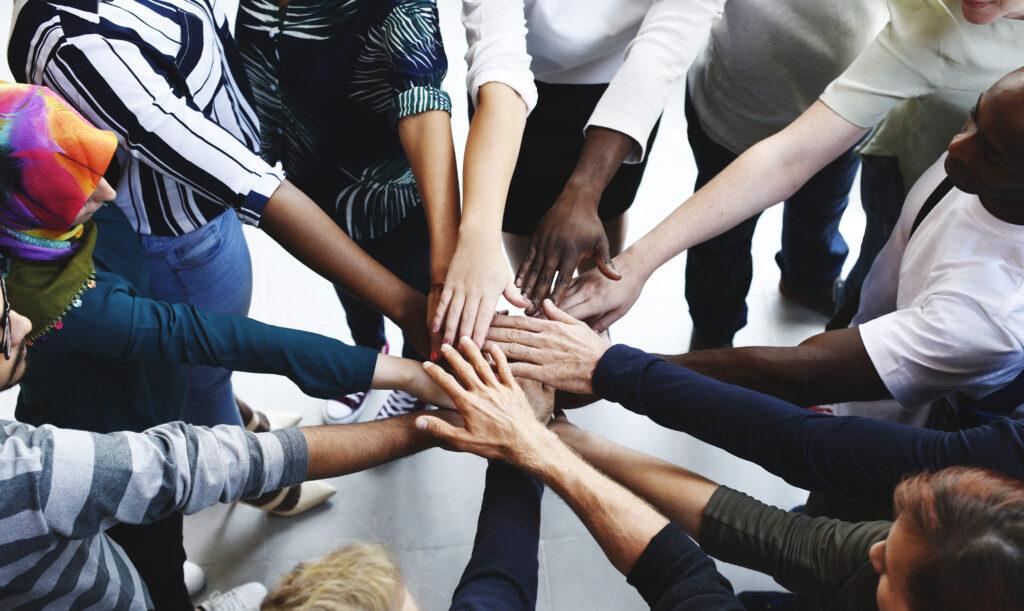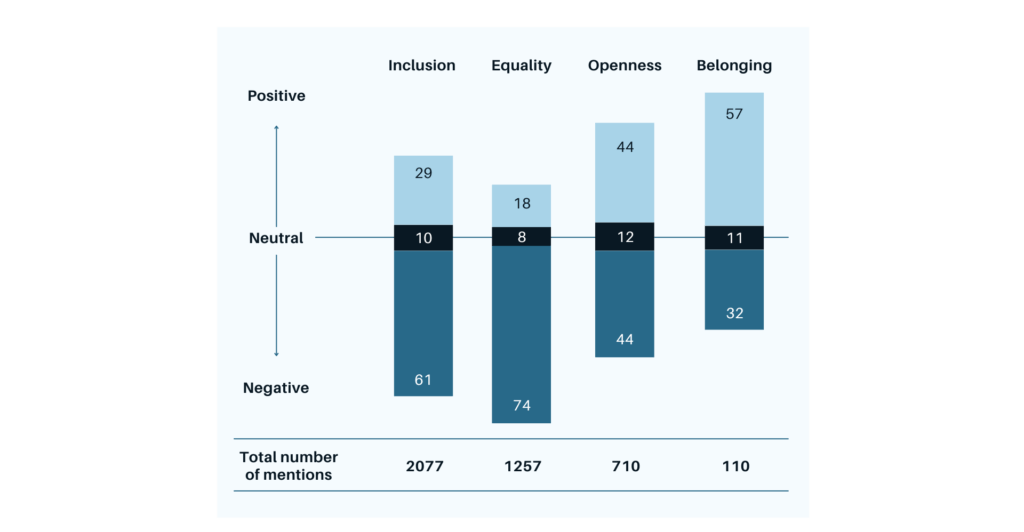Successful Diversity, Equity, and Inclusion workplace programming has organic benefits that naturally occur throughout the process of working with employees and staff.
Since the murders of George Floyd and Breonna Taylor in 2020, it is no secret that DEI (diversity, equity, and inclusion) has received more attention in recent years than before. According to a 2021 survey by Baker McKenzie, it was reported that 85% of companies surveyed now train employees on matters such as sexual harassment and bystander intervention; 81% offer mental health awareness programs; and 80% have programs focusing on anti-racism and racial inclusion. In addition, 63% of participants stated they plan to expand existing programs in the coming year.
Despite the dramatic shifts toward workplace DEI programming, many have reportedly missed the mark in employee satisfaction. This is often due to a workplace’s lack of resources for DEI programs, questionable authenticity in the creation of programs, and companies’ inability to speak out on social justice issues and concerns. There are, however, many underlying benefits of DEI programs in the workplace that are not easily measured. We’ve listed three benefits that can happen organically as a byproduct of your company’s programs, activities, and initiatives.
1) People tend to speak up more and fear social anxiety less
An effective DEI program is one in which employees can bring their true selves to work. Even if a person isn’t able to truly become their “off the clock” version of themselves, aiming toward that goal creates a culture of authenticity. With the increased authenticity, employees are more likely to say and do things with less fear of acceptance or repercussions.
A culture of belonging helps decrease social anxiety. With a decrease in social anxiety, employees are likely to have higher work performance, specifically those that work in teams. Veroshk Williams, PhD, a clinical psychologist in San Juan, Puerto Rico, says that “work is the perfect combination for social anxiety and panic to arise. In addition, we’re often fatigued from work, which makes it easier for our nervous system to malfunction.” Inclusion programming combats this anxiety by leveling playing fields and lowering power dynamics across organizations.
2) Allows for creativity and ownership amongst employees.
Diversity is a vast, complex, and multifaceted subject with many viewpoints and ideologies. When employees are able to participate in diversity programming, or ERGs (employee resource groups), they are more likely to advocate for their group or their allies. When people put everyday business aside and discuss what it takes to create a sense of inclusion, creativity begins to arise as the many viewpoints blend toward one desired outcome.
If you haven’t seen this happen in your workplace, then challenge your staff to create programming for Celebrate Diversity Month in April and watch the creativity begin.

3) Bridges the gap between work and humanity
In comparison to traditional philanthropic and volunteer activities, DEI programs bring an internal perspective to the nature of your business and who works there. Promote cultural diversity and human connections by letting employees share their heritage and learn about each other.

The DEI data is skewed, and results show that progress is relatively slow. However, a recent McKinsey study showed that belonging is the highest-rated indicator of DEI progress in comparison to inclusion, equality, and openness. Belonging brings humanity to workplaces, influencing how people show up for work.

Key Takeaways
As you embark your self-discovery journey, check in, be honest, and practice self-kindness. Treat yourself with respect. This is a lifetime journey, so enjoy the process and be patient with yourself. At times, you’ll be surprised by what you find. Take time to notice the subtle shifts and acknowledge how far you’ve come.
Workplace diversity programming is here to stay. However, whether companies are proactively developing engaging and thoughtful programs is constantly in question. While the issue of authenticity is very real, companies can still find meaningful ways to benefit from these programs. This can happen as a byproduct of building sustainable DEI initiatives.
Creating a culture of empowerment, creativity, and human-centric values is a challenging endeavor. It takes time and oftentimes external help. In order to create a truly inclusive workplace, trust must be built. Empower people to participate in the creation of these programs and working with subject matter experts in the field.
If you are a DEI practitioner or are looking to build upon your current DEI program, please reach out today!
Follow me on Instagram and LinkedIn.
Tony Holmes, Certified Professional Diversity Coach





